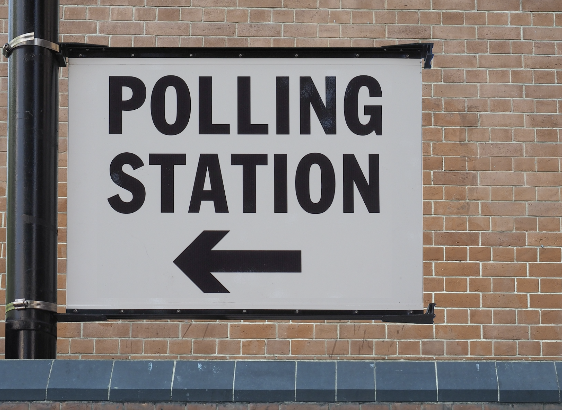Reverse Charge VAT – Are you ready?
If you support businesses operating in the building and construction services industry, then you should be aware that a major change is happening to the UK VAT system that affects you.
On 1st October 2019, Reverse Charge VAT will come into force. However, it would appear that this major piece of legislative change has been flying under the radar. According to the Federation of Master Builders (FMB), 69% of its members have heard nothing about it and even among those that have heard about the new system, 67% aren’t ready. The Government estimates 150k construction sector businesses will be impacted by what they believe is a significant administrative burden. As a result, there are calls for a delay in implementing this change.
So, with no delay in sight, Pulse Cashflow are getting ready and are helping our clients by making sure they have the information they need to make the changes as well as minimising the impact on their business. The following information is designed to provide you with more information as well as pointing you in the direction of further information on the whole subject of Reverse Charge VAT to get your clients business ready in time for the 1st. October.
Why is this change happening?
The new legislation has been designed to combat tax related fraud in the sector. HMRC has been subject to non-payment of VAT for many years and this form of tax avoidance is increasing. Where this happens, Suppliers charge their customers VAT but then do not pay this VAT to HMRC.
What is Reverse Charge VAT?
Reverse Charge VAT is a change to the way VAT is collected and affects both suppliers and customers who are both VAT and CIS Registered. Under this new scheme, the supplier will no longer charge VAT to their customer on its standard rate or reduced rate specified supplies. Instead a customer who commissions building and construction services will in future pay the VAT element of their invoice directly to the HMRC rather than their supplier. Therefore, placing the emphasis for accounting for and paying VAT due to the HMRC firmly at the customers door. As such business’s will have to account for the reverse charge VAT on its own VAT return and will be able to recover that VAT on the same VAT return, subject to the normal VAT recovery rules.
What type of services are classed as specified services?
The construction services covered by the reverse charge are those falling within the definition of 'construction operations' in CIS. This wide definition includes the construction, alteration, repair, extension, demolition or dismantling of buildings or structures and infrastructure such as roads, railways and waterways. It also includes painting and decorating. If the job involves the supply of a mix of specified and other construction services, it will be classed as a single supply of “specified services” and the reverse charge will apply.
Are there any situations where it doesn’t apply?
Yes. The situations where the reverse charge VAT does not apply and normal VAT charges continue to apply are:
- where the supplier is not CIS or VAT Registered
- when the supplies delivered fall outside the specified services definition of Construction Operations in the Construction Act.
- Some contractors (for the reasons above) may not be affected but it is expected that most construction companies will be impacted.
- when the services are delivered to end users’, who are not passing them on for onward supply
- between connected parties
- between landlords and tenants
- the service delivered is zero rated
- for Employment Agencies supplying and paying construction workers
- Architects professional services, surveyors and certain consultants
A situation to look out for is if a customers’ position changes mid-contract. For example, a developer considered to be an end user because they were intending to rent the building may decide to sell the building to a firm and continue to supply specified services to them meaning that they were now not the end user and the customer would need to make the supplier aware that the reverse charge now applies.
Why should it matter?
Reverse Charge VAT comes into force on 1st October 2019. After this date businesses will need to ensure they comply, or they will find themselves on the wrong side of the law. To comply requires changes to how businesses account for VAT. In addition to this the reduction of VAT income to a supplier will have a significant impact on cashflow for businesses involved. The monies normally paid for the VAT element of invoices will no longer flow between businesses. Instead, VAT is calculated and can be noted on the invoice as a reverse charge but not as part of the total invoice value. It will be the responsibility of the “end user” to account for the reverse charge VAT on their VAT return and to ultimately pay the tax to HMRC.
What do your clients need to do to become VAT Compliant?
- Get clarification who is the real end user so you know who is liable for the VAT payment and collect evidence/confirmation if you can
- Review your contracts and include statements referring to how you treat VAT on supplies
- Clarify if the end user is CIS or VAT registered.
- The end user also has a responsibility to notify their supplier if they believe the reverse charge VAT applies to them.
- Identify what changes you need to make to your invoice templates and make them
- Be clear as to what changes are needed to their accounting system and how will they be implemented
- Set up a process for how you account for VAT on your VAT return for suppliers and customers who are affected by reverse charge VAT
- On VAT returns, you need to ensure that for sales you will not include VAT but for purchases from reverse charge affected supplies you need to include it
- Supplier invoices should clearly state that the invoice is subject to Reverse Charge VAT but should not include VAT on the invoice. It should include either the rate of VAT or the amount due as a Reverse Charge
- If their end of tax year is before 1 October than normal VAT rules apply, if post 1 October 2019. then Reverse Charge rules apply
HMRC has also published a guidance note which can be found here.
How will this affect my cashflow?
The flow of VAT payments into a business can be treated as a boost to cashflow at least until the next VAT return when payment of VAT is made. This change in how VAT is paid, will mean that many construction businesses will no longer be able to rely on VAT money for cash flow. Although it is recognised that VAT does not essentially belong to the business, it has become the norm for businesses to use it to prop up cashflow. With this change, Businesses need to start preparing now for this reduction in cashflow and begin to plan as to how to replace it. On the opposite side, main contractors defined as the “end user” will have to pay a higher VAT bill for all specified services provided. Industry bodies alike are concerned that the reverse charge could cause significant cashflow difficulties for smaller sub-contractors causing disruption to the supply chain.
Pulse Cashflow Finance can help businesses in this section with our specialist Construction Linked Finance solution. Our clients benefit from the provision of funding solutions designed to improve cashflow and support business growth. With funding facilities available up to £1.5m, clients have access to working capital they need to make their business plans come to life.
Don’t forget about the (time and) cost!
Changes to processes and your accounting system will entail hidden costs. These will include costs involved with the business familiarising itself with the new rules and adapting VAT accounting systems and processes to enable reverse charge supplies to be calculated and reported. There will also be ongoing costs which include: calculating the reverse charge; keeping records of all reverse charge supplies; checking the reverse charge is correctly applied; reporting reverse charge supplies on VAT returns; and, crucially, obtaining evidence as to whether or not a customer is an end-user.
Get Reverse Charge ready now!
The deadline is fast approaching and although HMRC suggests it will be lenient with errors in the first six months as long as you are seen to be attempting to comply with the new legislation, penalties will eventually be imposed.
Building and Construction companies need to get ready now.
We would like to share with you some useful advice from Chartered Accountants, PKF Francis Clark. It is a clear guide to the upcoming changes and a great FAQ. Their information pack can be found here
If you would like further information on how our funding solutions can reduce the impact on reverse charge VAT then give Pulse Cashflow a call on 0845 539 7003 or speak to your Regional Sales Director.
This article is our interpretation of the forthcoming changes and is not a substitute for advice which your clients should seek from their accountant or tax advisors



